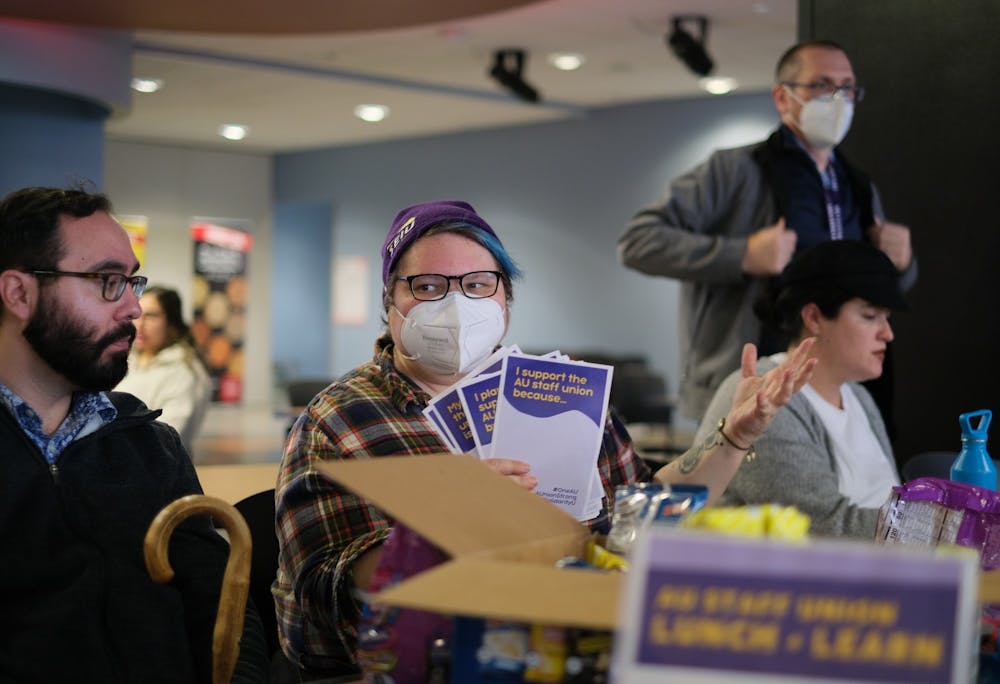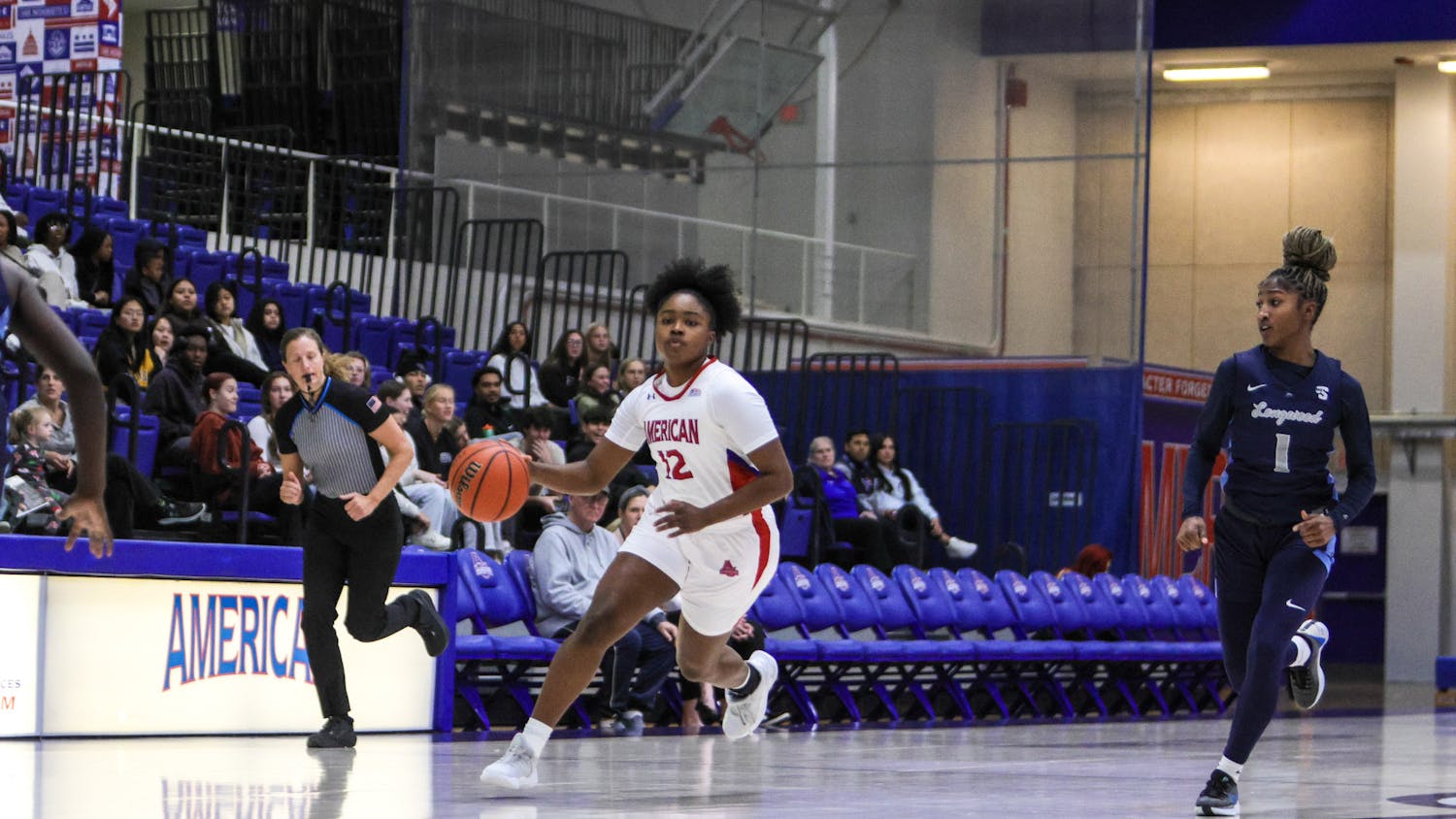American University’s Staff Union held a series of lunch-ins to celebrate the ratification of its contract and to display solidarity amongst community members.
The original purpose of the event was to show support for the Union after members claimed that the University was delaying “the final steps of copy-editing and signing the contract document.”
Although the Union’s original plan for action was to have a signed contract after two weeks of waiting, the University sent its final edits two days before the luncheon event, union members said. The Union said the event would still be held, instead as a celebration of each other’s support and advocacy as well as showing AU their continued presence on campus.
"The agreed-upon terms went into effect when the agreements were ratified last month and implementation began while the final documents are completed. As part of the process, both parties review and approve the official CBA language," the University said in an Oct. 4 tweet.
Aubrey Hill, a career services systems administrator at AU and an early member of the Staff Union, attended on Oct. 5 and helped organize the lunch-ins.
Hill said the intention behind the event was to spend time as a community of faculty and staff at AU as well as to invite student allies to maintain those connections.
“The purpose is to celebrate that the contract is actually finally in effect, to give people the opportunity to talk to each other who haven't gotten to talk to each other since the strike, or who weren't involved and now want to be involved to get to know each other,” Hill said.
Hill said that, because of her role in the Union, she has never felt more connected to staff and faculty across various departments as well as students, even including her time spent as a graduate student at AU.
“We’re also building that sense of solidarity and that sense of like, ‘I know you,’” Hill said. “‘I know what your working conditions are like. I know what is important to you. I know things about you as a human being.’”
Joshua Keilholtz, a College of Arts and Sciences advisor and member of the Staff Union, shared Hill’s sentiment that conversations with other members of the union have validated his experiences facing inequities working at AU and been a “productive way to facilitate relationships across campus.”
Keilholtz said the strike at the beginning of the semester was a necessary direct action that came from the administration’s inability to communicate in good faith.
“We’re not doing this because we want to or because we’re bored or because, you know, this is enjoyable,” Keilholtz said. “The strike was not our first, second, 100th choice. It was a last resort.”
Brishen Rogers, a professor of labor and employment law at Georgetown University, told The Eagle that he was impressed with the Union’s organizing efforts. Rogers, whose wife Fernanda Nicola is a professor at the Washington College of Law, said he feels the Union’s campaign was well thought out.
“[Connecting with freshmen students] is something I haven’t seen happen in higher education organizing, certainly not that quickly,” Rogers said.
Rogers was a labor organizer with Service Employees International Union before attending law school at Harvard University.
“[This strike was] a sign of a changing political climate for labor,” Rogers said. “If this had happened ten years ago, the students may not have responded as positively. But people around the country are getting fed up with growing inequality.”
Matthew Vigneau, a freshman in the School of Public Affairs, decided to join the Staff Union strike after hearing their chants while unpacking in his dorm at the beginning of the semester.
“I’m from a union household,” Vigneau said. “My mother has always taught me never cross a picket line but when you see one, join one, so I knew that was where I needed to be.”
Sam Sadow, a visual resources curator at the Katzen Arts Center and SEIU Local 500 member, said the purpose of the lunch and other activities by SEIU is to put ongoing pressure on the administration to honor their agreements to the staff.
“If they [the administration] think we’re going to stop pushing them to act with the urgency we deserve, that’s a poor assumption on their part,” Sadow said of the University. “Whether or not they’re working to implement [the contract], we’re going to be right here pushing them to implement it faster.”
Keilholtz said the work for the Union is not over.
“I think now [there is] just the realization that we’re not done,” Heilholtz said. “Another contract is coming up in two years so we are going to be back at the table again.”
mkonjoyan@theeagleonline.com, oaustonbabcock@theeagleonline.com, mfishel@theeagleonline.com, gharman@theeagleonline.com





